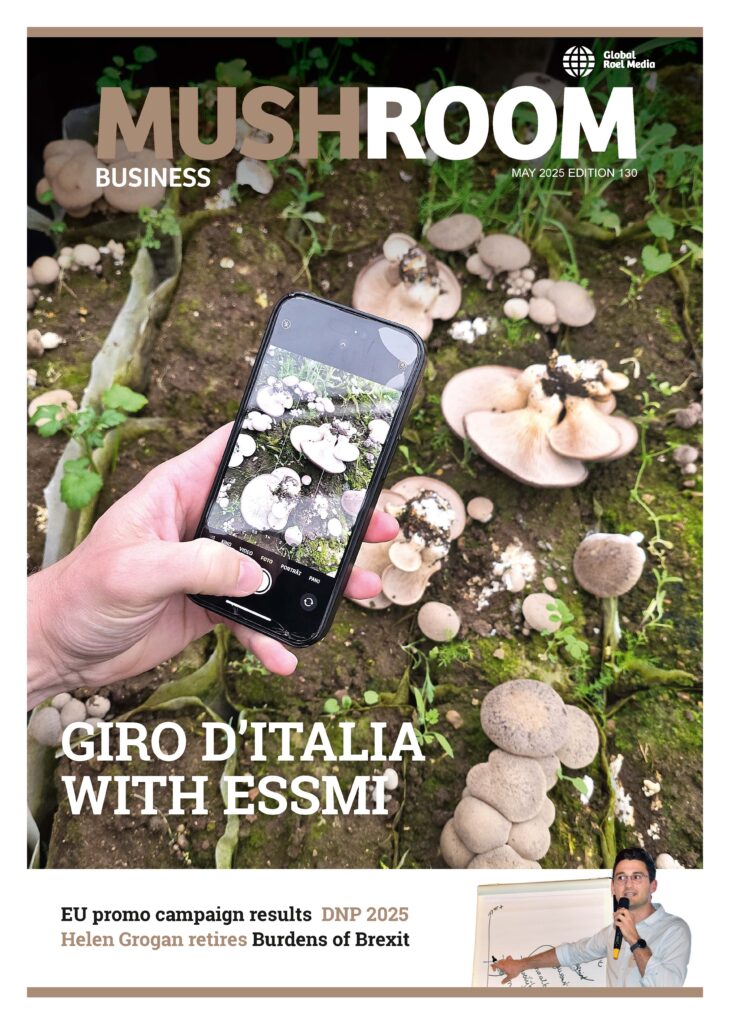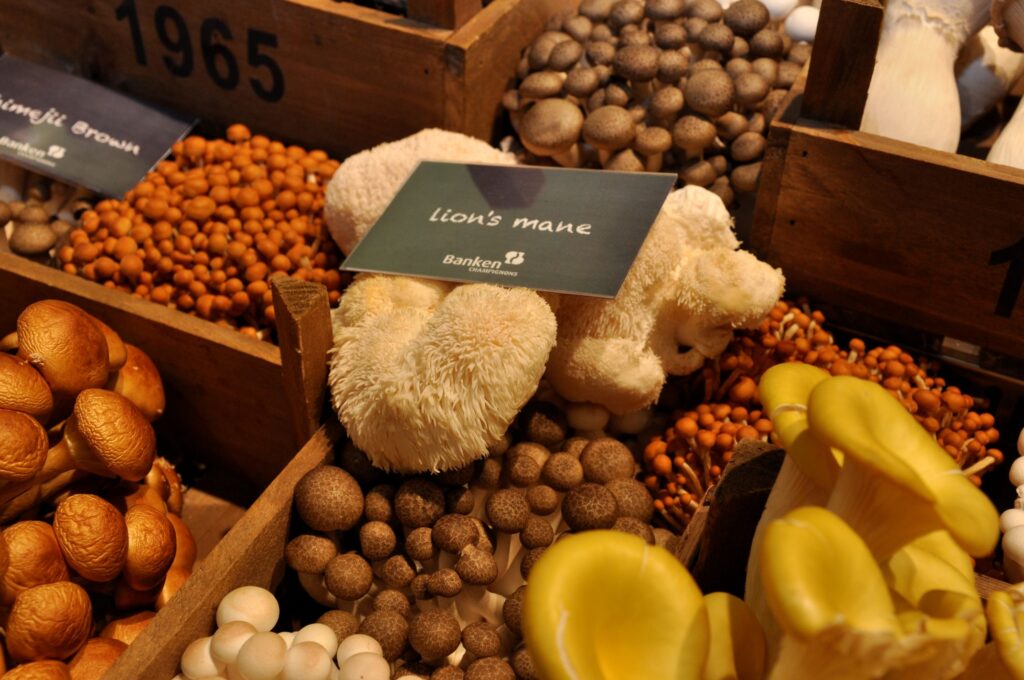Gypsum is perhaps the most important additive required for constant compost quality. It fulfils a multitude of functions: It lowers the pH binds fatty substances in the compost lowers the sensitivity to ammonia at the moment of inoculation and buffers oxalic acid during mycelium growth. In short, it stabilises and corrects compost so that if the composting process is not progressing optimally, you can still produce good compost. Nothing but praise for gypsum! As ever there’s a catch.
To achieve the positive effects mentioned above, no more than 22 kg gypsum (100% dm) per 1000 kg phase I compost is required. As gypsum is not expensive, the moisture content varies from 5-30% it is often pre-mixed with chicken manure. As it is assumed that too large quantities do no damage, there can be huge differences in the amount of gypsum added at various composting companies.
Too much gypsum does have a damaging effect as far as I’m concerned. The effectiveness of gypsum is 100% 1kg of gypsum stays 1kg throughout the composting process. So as a composter, you can increase profits by using it. However mushrooms don’t grow on gypsum but on organic matter Simply stated if you have compost with a high ash content caused by (too much) gypsum, then the mushrooms have less organic matter available and mushroom production per ton of compost is lower. It’s also difficult to reach the optimal moisture content as the water in compost is compounded by organic matter and not by ash So dose enough gypsum but avoid overdosing!
Con Hermans, AdVisie ‘The mushroom cultivation advisors’
hermans@champignonadvies.nl






